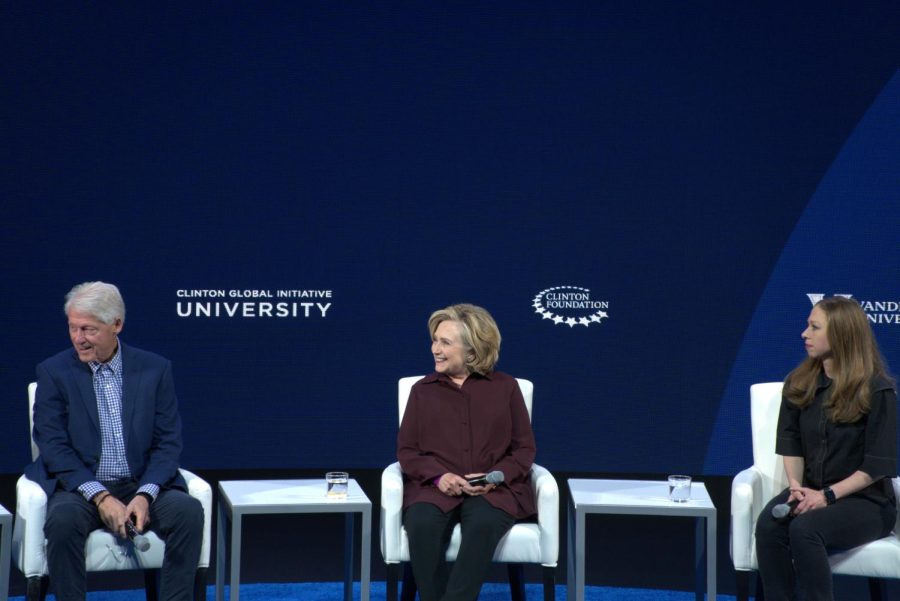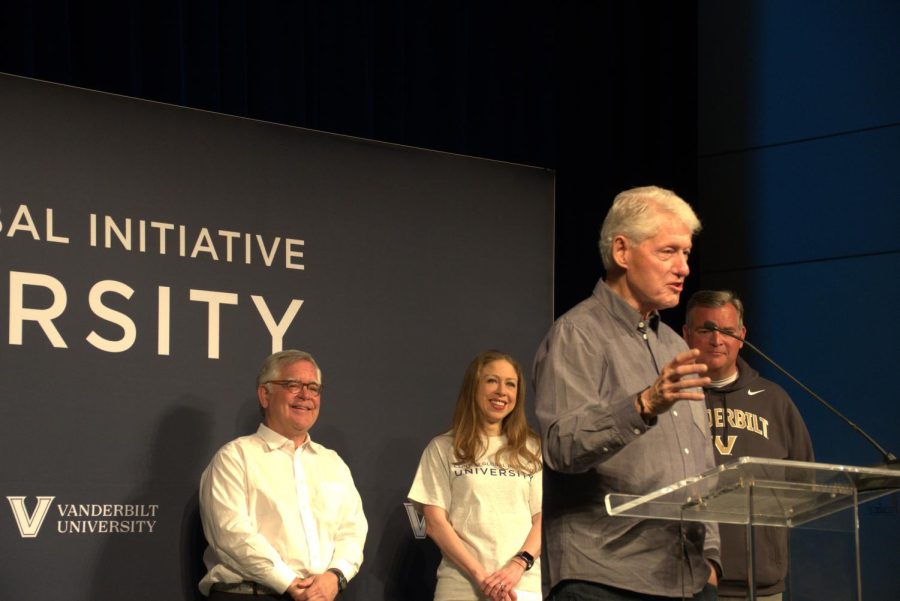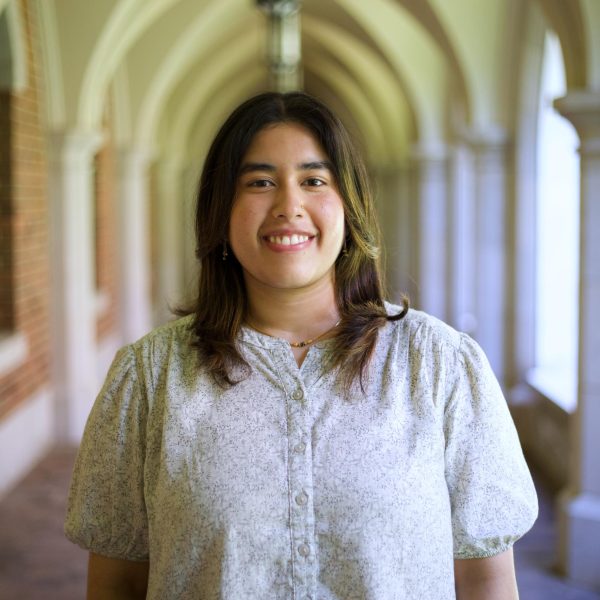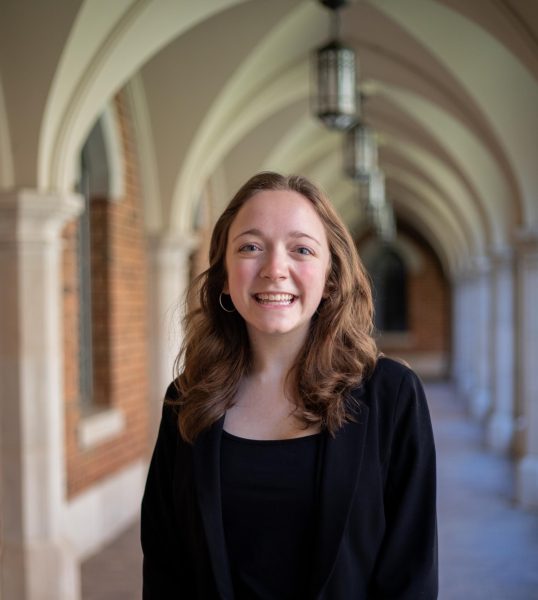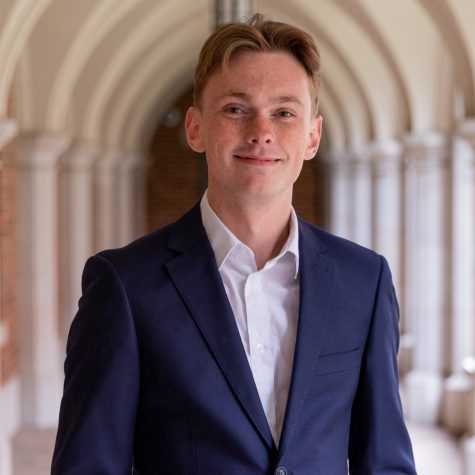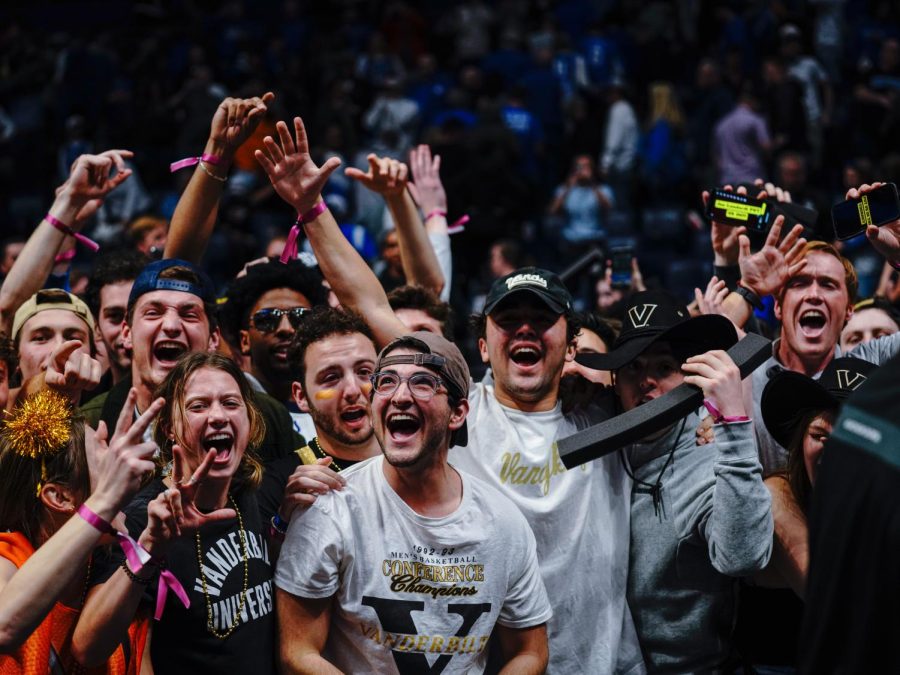Editor’s note: This piece mentions sexual assault.
The 15th annual Clinton Global Initiative University took place at Vanderbilt from March 3-5 for the first time in person since the COVID-19 pandemic. The event brought together 787 student leaders from 338 universities around the world to work on their Commitments to Action — initiatives created to address an “urgent community challenge.”
The theme for this year’s CGI U was “Homecoming: Strengthening Community, Leadership and Action.” CGI U included plenary, working and skills sessions where students could learn about advocacy and ways to develop their own projects. The weekend concluded on March 5 with a “Day of Action” in which students volunteered at Second Harvest Food Bank, PENCIL and the Native American Indian Association of Tennessee.
On Saturday, the Dores Worker Solidarity Network handed out packets to attendees titled “Vandy Kills Workers.” Included in the packet were a letter expressing concerns about workplace safety in Nashville and a letter addressed to Chancellor Daniel Diermeier calling for Vanderbilt to do more for its marginalized population. The university has acknowledged the deaths of two construction workers at the Owen School of Business and Rothschild College. DWSN was launched on Feb. 9 as a coalition of advocacy groups with the goal of improving construction practices on campus and in Nashville.
Opening plenary
Diermeier began the weekend with a discussion about Vanderbilt’s founding, the upcoming Sesquicentennial Celebration and Nashville’s position in the Civil Rights Movement. He then introduced Former President and Clinton Foundation President Bill Clinton.
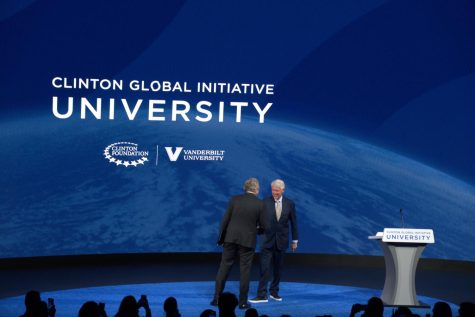
Bill Clinton cited John Lewis and Diane Nash — who used sit-ins to desegregate lunch counters in Nashville during the Civil Rights Movement — to push students to celebrate diversity and advocate for what they believe in.
“I believe — based on all these years I’ve elapsed — that the most important thing is to never disempower yourself and to not waste your time trying to disempower other people,” Bill Clinton said. “Try to make them believe they can do more than they can.”
This session also included a conversation between former Secretary of State Hillary Clinton and U.S. Secretary of Transportation Pete Buttigieg. The pair touched upon Buttigieg’s work in the White House, citing federal response to the recent Ohio train derailment. Buttigieg additionally discussed the personal challenges he has encountered as the first openly gay Cabinet secretary in U.S. history and how his identity has helped him connect with others.
“What I found — and what I hope anyone wrestling with anything remotely like that today knows — is that what seemed like a threat or an obstacle became a huge part of what I actually had to offer,” Buttigieg said.
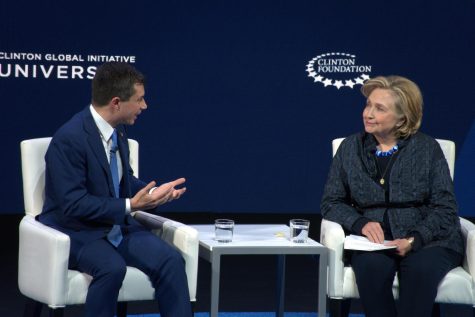
After this conversation, Chelsea Clinton moderated a panel with Olivia Julianna, Georgina Pazcoguin, Jordan Reeves and Sukhmeet Singh Sachal.
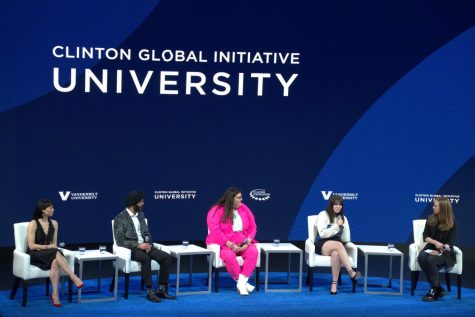
An advocate for women’s rights, Julianna discussed the overturning of Roe v. Wade (1972) and her recent interaction with Matt Gaetz that led to her raising over $2 million for abortion funds in four days.
“You shouldn’t be afraid to fight for what you believe in or to lead with your identity forward because the reality is: I think there are more good people in the world than there are bad,” Julianna said.
Town Hall and student Q&A
The events on March 4 started with a town hall Q&A led by the Clinton trio. Ragina Arrington — the CEO of CGI U — moderated as the Clinton family answered questions from students. The first question, asked by Vanderbilt sophomore Zacarias Negron, inquired about how younger generations should unite in the face of adversity. Negron declined to comment further on this topic or his question.
“From everything I know both personally and what I see out in the world, your generation [Gen Z] is so poised to exercise more influence about the decisions that we make for our future,” Hillary Clinton said. “You’re not as divided. You are much more inclusive — you are much more tolerant.”
First-year Ben Paolucci said he was “very grateful” for the speakers’ answers to his question concerning the government’s work in alleviating mental illness.
“Their thoughts on how the government can better support individuals and families of those with mental health issues and disabilities inspired me to use my resources and those available at the state and federal level to positively serve this community,” Paolucci said.
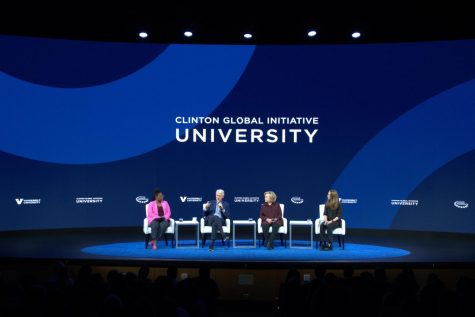
The Clintons answered various questions about mental illness and their personal motivations. They also gave advice to students about pursuing their Commitments to Action and other projects in their futures.
“We all care about a lot of different things, but we can’t all work on all of those things at the same time,” Chelsea Clinton said. “For me, I spend my time and energy in areas that mean a lot to me where I hope to make even a slight positive difference.”
Working and skills sessions
Following the town hall, the students split up to attend working and skills sessions of their choosing. The working sessions focused on addressing global issues — such as education, climate change, human rights, poverty and human rights — while the skills sessions focused on fostering skills needed to bring the students’ Commitments to Action to fruition.
One working session was titled “Protecting the Rights of Girls and Women During Conflict and Uncertainty.” It was moderated by Hillary Clinton and featured speakers Shadrack Osei Frimpong, Amanda Nguyen and Michelle Nunn, all activists working to increase the rights of girls and women amid crises faced around the world.
Nguyen shared her journey toward healing after being allegedly sexually assaulted. When she realized she could not receive justice through the legal system, she decided legislation needed to be changed.
“What sustained me was hope and that my voice actually does matter,” Nguyen said. “When I’m sitting across from a senator or from very important people, I do have a right to be there. If I bring forth ideas and try to tell my story, people will listen.”
Sophomore Eshani Mehta, a CGI U participant from Vanderbilt, said she was grateful to have met students from around the world who are pursuing their passions through the CGI U programming.
“Meeting students my age who have created such meaningful change in their communities inspires me to keep working hard to serve my own community,” Mehta said.
Sophomore Charu Balamurugan, a CGI U participant, said she wished there were more opportunities for one-on-one mentoring to discuss individual Commitment to Action projects.
“Especially for students that do not already have external mentors to guide them toward executing their Commitment to Action, I think it would be difficult to know exactly what the next steps are from the activities at CGI U alone,” Balamurugan said in a message to The Hustler.
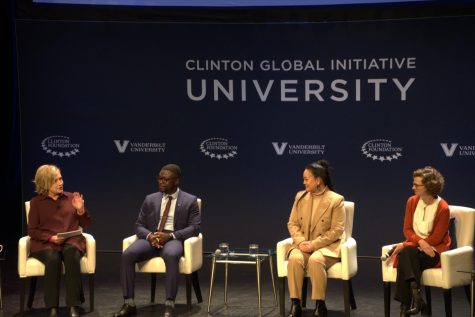
Afternoon plenary
The afternoon plenary featured two sessions — one hosted by Hillary Clinton and the other by Chelsea Clinton. The discussion in both sessions focused on the movement toward building a more inclusive workforce.
Hillary Clinton’s session featured Melissa Bradley, Diego Mariscal and Ai-jen Poo, who talked about the need for racial and gender equity in the workforce and in positions of power. They also discussed the importance of caring for people with disabilities and other minority groups.
“Caring is at the base of the economy, enabling people to go to work, enabling people to have many of the jobs that they have, enabling others to go out and just support the economy,” Hillary Clinton said.
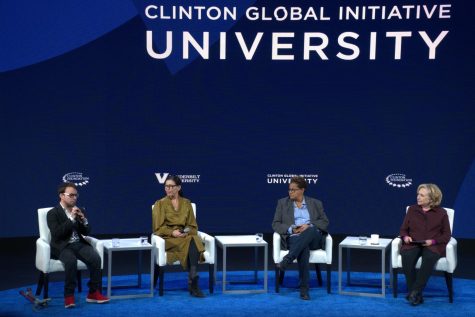
Chelsea Clinton’s session featured Elissa Russell, Reshma Saujani and KP Yelpaala to discuss how technology can aid in developing a more inclusive workforce. They discussed the start-ups they created to further that goal and gave advice to students pursuing their own projects.
“Embrace bravery, not perfection, and that means [you should] fail,” Saujani said. “You cannot be great unless you fail. And if you want to change the world, you have to be great. And that means you have to have experiences that teach you how to do better.”
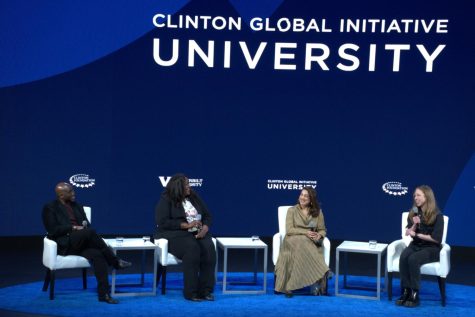
Closing plenary and Exchange Fair
The closing plenary opened with Bill Clinton and Allyson Felix, a 5-time Olympian and co-founder of Saysh, a women’s athletic shoe company. They discussed her career in track-and-field and her transition to motherhood while still being an athlete. Felix started her own company because she did not want to continue trying to persuade companies to sponsor her.
“I was just so tired of begging companies to see my worth and to see my value. I wanted to be able to show up as my full self,” Felix said. “There was an opportunity that we could create change instead of asking someone else to do it, so we did.”
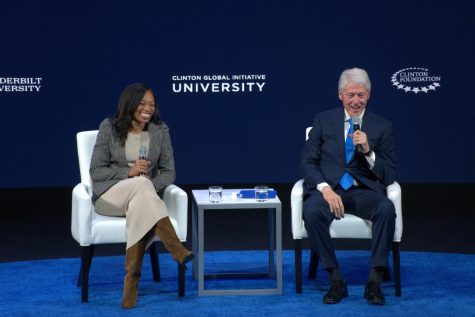
The second guest of the closing plenary was Jaylen Smith, the mayor of Earle, Arkansas. Elected at 18 years old, he is one of the youngest African-American mayors in the U.S. Bill Clinton and Smith talked about Smith’s education, his campaign and future projects. One aspect Smith hopes to pursue during his tenure is helping more students with disabilities pursue higher education.
“[Disabled students] can be presidents, attorneys. They just didn’t have that hope because they knew that they weren’t getting taught correctly,” Smith said.
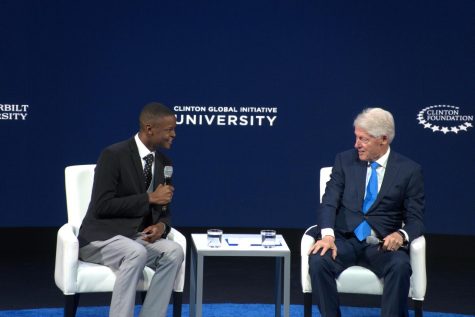
The closing session was followed by an Exchange Fair in which selected students presented their Commitment to Action projects to their peers and potential sponsors. This event gave students the opportunity to network with other participants. Vanderbilt sophomore Leo Huang felt “honored” to be able to share his project with others.
“We never expected to be able to directly share our project with the Clintons,” Huang said. “We felt honored to be selected among the other presenters, connecting and learning from other commitment makers and mentors.”
Dores Worker Solidarity Network advocacy
During Saturday’s events, the Dores Worker Solidarity Network distributed flyers to attendees, including Diermeier. These flyers contained three parts: a page reading “VANDY KILLS WORKERS,” a piece expressing concern about workplace safety and a letter from senior Laith Kayat directed to Diermeier.
“I hope every faculty member and administrator hears these calls to action and addresses the injustices that Vanderbilt is complicit in. With all the distinguished guests on campus we wouldn’t want them to leave with the false impression that Vanderbilt is perfect,” Kayat said.
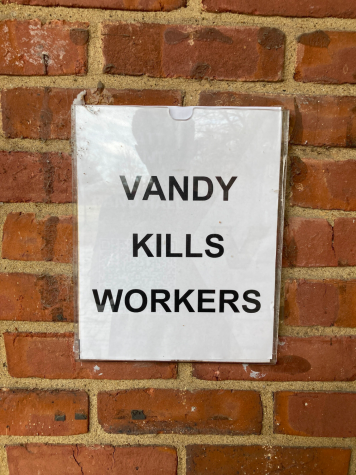
DWSN member Jackson Davis, a senior, wrote the piece about workplace safety concerns and said he believes the university is “failing” to ensure fair and ethical labor practices on campus.
“The university’s leadership is aware that its construction projects are exploiting socially vulnerable people and violating workers’ rights, but because the university hires contractors (and they hire subcontractors), the university kind of cleans its hands of accepting responsibility for its part in shady labor practices,” Davis said in a message to The Hustler.
In a message to The Hustler, a university representative said contractors are required to provide safety records during the selection process and must attend weekly meetings to discuss project safety.
“We work closely with our external construction partners to maintain the safety and security of our building sites and subscribe to all required city and state codes and ordinances,” the statement reads. “We expect partners who do business with and on behalf of the university to treat business associates and employees fairly.”

